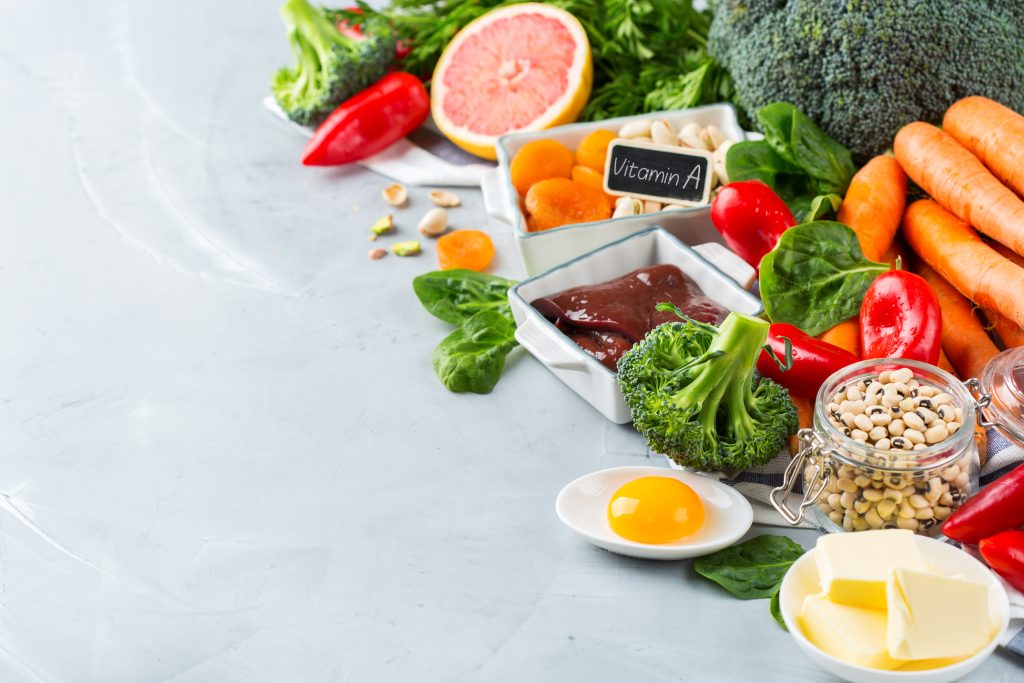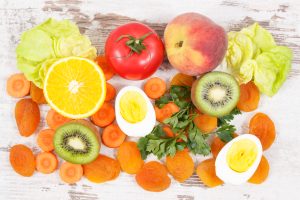Boost Your Chances Of Conception With These Nutrient-Rich Foods

Are you struggling to conceive? It might be time to re-evaluate your diet. Nutrition plays a crucial role in fertility, and consuming nutrient-rich foods can help boost your chances of conception. On the other hand, a high-fat, western diet can lead to ovulatory infertility and negatively impact reproductive health. To increase your chances of getting pregnant, it’s important to include essential nutrients in your diet, such as folic acid, vitamin B12, vitamins A and E, omega-3 fatty acids, iron, zinc, and selenium. These nutrients help with the development of healthy blood cells, promote a healthy menstrual cycle, and improve sperm quality. In this article, we’ll explore how including these nutrients and dietary patterns in your meals can positively impact your fertility.
Nutrition for Conception: Why It Matters
Nutrition plays a key role in reproductive health and conception. It impacts hormone regulation, energy levels, blood flow, and inflammation – all factors important for successful conception. Studies have highlighted that following a healthy and balanced diet rich in essential nutrients can help boost your chances of conceiving.
One important nutrient for conception is folic acid. Women who are planning to conceive are often advised to take folic acid supplements to reduce the risk of neural tube defects in their babies. Additionally, a higher intake of vitamins A, B12, and E, omega-3 fatty acids, iron, zinc, and selenium can also help regulate hormones and improve fertility.
A wholesome lifestyle that includes regular exercise, stress management, and quality sleep can also support reproductive health. Maintaining a healthy body weight is essential too, as excess weight gain can lead to hormonal imbalances that may affect fertility.
It’s important to note that nutrition for conception is not just for women – it’s equally important for men to consume a balanced diet. Foods like fatty fish, lean proteins, plant-based foods, pumpkin seeds, and nuts all contain nutrients that support healthy sperm quality.
Nutrients That Support Fertility
When it comes to fertility, a balanced and nutrient-rich diet is crucial for both men and women. Certain nutrients can help regulate hormones, improve sperm quality, reduce the risk of birth defects, and increase the chances of conception. In this article, we’ll explore some of the best foods to eat for fertility and overall reproductive health.
Folic Acid
Folic acid is an essential nutrient that plays a crucial role in the development of a baby’s neural tube and can boost a woman’s chances of conception. It is a B-vitamin that helps with the production of new blood cells and also supports the health of other cells in the body.
Folic acid intake is crucial for women who are trying to conceive, which is why it is important to include foods rich in this nutrient in their diets. Additionally, taking prenatal vitamins that contain folic acid can help ensure that a woman is getting the necessary amount of this essential nutrient.
Foods that are rich in folic acid consist of leafy vegetables such as spinach and kale, beans, citrus fruits, fortified cereals, and whole grains. Including these foods in a balanced diet can increase folic acid consumption and support reproductive health.
Vitamin B12
Vitamin B12 plays a vital role in maintaining reproductive health and improving your chances of conception. This essential nutrient is responsible for maintaining healthy blood cells and ensuring the proper functioning of the nervous system.
Research has shown that a deficiency in Vitamin B12 may affect sperm quality and increase the risk of ovulatory infertility in women. A systematic review of studies also found that B12 supplementation could improve sperm count and motility in men struggling with infertility.
It is crucial to include B12-rich foods in your diet to maintain healthy levels of this nutrient. Foods such as lean proteins like chicken and turkey, fish like salmon and tuna, and low-fat dairy products like milk and yogurt can provide an excellent source of Vitamin B12.
However, vegetarians and vegans may have difficulty obtaining adequate levels of B12 through their diet since it is mainly found in animal products. In such cases, it is advisable to supplement with B12 to ensure healthy levels and optimize reproductive health.
Vitamins A and E
Vitamins A and E are essential nutrients that play a vital role in supporting reproductive health and boosting the chances of conception. These vitamins contribute to the proper functioning of the reproductive system, and when included in a healthy diet, can help to promote healthy egg development and sperm function.
Vitamin A is a fat-soluble nutrient that is vital to the development and maintenance of healthy cells, including those in the reproductive system. This vitamin helps to improve fertility by promoting healthy follicles in the ovary, and is known to support the development of healthy cervical mucus. Vitamin E, on the other hand, is a powerful antioxidant that helps to protect cells and tissues from oxidative damage. This nutrient is essential for sperm health and can help to improve the quality of sperm in men.
When taken together with other essential nutrients, Vitamins A and E can help to improve the chances of conception in both men and women. These vitamins work in conjunction with other essential nutrients such as folate, zinc, and iron, to promote healthy sperm and egg development. In fact, research has shown that a deficiency in Vitamin A may lead to ovulatory infertility in women.
Furthermore, studies have also suggested that Vitamin E may help to reduce the risk of certain reproductive issues such as gestational diabetes and polycystic ovary syndrome (PCOS). This is due to its ability to improve insulin sensitivity and regulate hormone levels, two factors that are critical to reproductive health.
To include Vitamins A and E in your diet, it is recommended to consume foods such as leafy green vegetables, carrots, sweet potatoes, almonds, and sunflower seeds. These nutrient-rich foods are excellent sources of these vitamins and can help to improve the overall quality of your diet. A healthy diet that includes these essential nutrients can help to decrease the risk of female infertility and support the development of healthy sperm.
Omega-3 Fatty Acids
Omega-3 fatty acids are an essential nutrient that plays a vital role in reproductive health. Recent studies have shown that diets rich in omega-3 fatty acids have been linked to increased fertility and improved chances of conception in both men and women.
Numerous studies have shown that omega-3s help regulate ovulation-inducing hormones and increase blood flow to the reproductive organs, ultimately helping to support the reproductive process. The best food sources of omega-3 fatty acids include fatty fish such as salmon, sardines, and mackerel, as well as plant-based foods such as chia seeds, flaxseeds, and walnuts.
For those looking to boost their chances of conception, incorporating omega-3 fatty acids into their daily meal plan can be a simple task. A breakfast of Greek yogurt topped with fresh berries and walnuts, or a salmon salad for lunch, can easily provide the body with the necessary dose of omega-3s.
Here are a few omega-3 rich recipe ideas to support fertility:
1. Lemon garlic salmon: This easy-to-prepare recipe includes a salmon fillet cooked in a mixture of lemon juice, garlic, and olive oil. Serve the salmon over a bed of greens with a side of quinoa for a well-rounded and nutritious meal.
2. Chia seed pudding: Combine chia seeds, almond milk, and agave nectar in a jar and leave it in the fridge overnight. The result is a delicious, creamy pudding loaded with omega-3s, perfect for a healthy breakfast or snack.
3. Walnut and berry salad: Mix fresh greens, assorted berries, and walnuts in a bowl. Top with a simple vinaigrette dressing made of olive oil, apple cider vinegar, and honey.
It’s essential to note that trans fats have a drastic negative impact on fertility. Incorporating processed foods such as fried and canned foods that are high in trans fat into your diet can increase the risk of infertility. It’s important to replace these unhealthy food choices with a balanced diet full of nutrient-rich foods such as those rich in omega-3 fatty acids.
Iron
Iron plays a crucial role in female fertility and can help prevent ovulatory issues. It’s an essential nutrient that helps transport oxygen throughout the body, including to the reproductive organs. Without enough iron, the body may struggle to produce enough healthy red blood cells, leading to anemia, which can negatively impact fertility.
It’s recommended that women consume at least 18mg of iron per day before pregnancy and 27mg during pregnancy. A balanced diet that includes iron-rich foods can help meet these daily requirements. Some of the best food sources of iron include lean proteins such as beef, chicken, and turkey, as well as plant-based foods like lentils, spinach, and fortified cereals.
Absorbing iron from food can be challenging for the body as there are two types: heme and non-heme. Heme iron is more easily absorbed by the body and is found in animal-based foods such as meat, seafood, and poultry. Non-heme iron is found in plant-based foods like leafy greens, beans, and fortified cereals. To enhance the absorption of non-heme iron, it’s recommended to consume vitamin C-rich foods alongside iron-rich foods. Citrus fruits, bell peppers, and berries are all excellent sources of vitamin C that can help the body absorb iron better.
It’s essential to screen for iron deficiency during preconception checkups, as too little iron could increase the risk of premature and underweight babies. Eating a balanced diet full of iron-rich foods is vital, but sometimes, supplements may also be needed to meet daily requirements.
Selenium
Selenium is a vital nutrient for promoting fertility, especially in women. Along with other nutrients, it plays a crucial role in maintaining reproductive health and increasing the chances of conception. Selenium is essential in promoting thyroid gland function, reducing oxidative stress, and influencing the growth and maturation of oocytes.
Selenium is a natural antioxidant that helps to reduce oxidative stress in the body. Oxidative stress is a condition where there is an imbalance between the production of free radicals and the body’s ability to counteract their harmful effects. This can lead to damage to cells, DNA, and tissues in the body, which can ultimately affect fertility. By reducing oxidative stress, selenium may improve the quality of oocytes and sperm cells, which can increase the chances of conception.
Selenium also plays a vital role in the proper functioning of the thyroid gland. This gland produces hormones that regulate metabolism, growth, and development. Selenium is important in maintaining normal thyroid function, which is crucial for regulating the menstrual cycle, ovulation, and fertility. Women who are deficient in selenium may have irregular menstrual cycles, which can affect their chances of conceiving.
Selenium plays a role in the growth and maturation of oocytes, facilitating the development of healthy eggs necessary for successful conception. It helps in the development of healthy eggs that are essential for successful conception. Women who have a deficiency of selenium may have reduced oocyte quality and an increased risk of miscarriage.
To boost your selenium intake, consider incorporating foods that are rich sources of this nutrient into your diet. These include Brazil nuts, tuna, halibut, shrimp, chicken, turkey, beef, eggs, brown rice, sunflower seeds, and whole-wheat bread. You can also add selenium-rich vegetables like broccoli, spinach, and garlic to your diet.
However, it’s important to note that selenium supplementation should be taken with caution and under the guidance of a healthcare professional. Consuming too much selenium can be harmful and result in negative side effects. Consulting a doctor or health professional will help you determine the appropriate dosage of selenium supplementation for your individual needs.

Conclusion
In conclusion, a nutrient-rich diet is crucial for maintaining reproductive health and boosting fertility. Essential nutrients like folic acid, selenium, and omega-3 fatty acids aid in proper egg and sperm development, as well as reducing oxidative stress. Along with a healthy diet, lifestyle factors like exercise, sleep, and stress management also play a significant role in increasing the chances of conception. Additionally, natural prenatal supplements can provide additional support for women looking to conceive, but it’s important to consult with a health care provider before adding supplements to your diet. Overall, a balanced approach to nutrition and lifestyle factors can significantly improve fertility outcomes.







